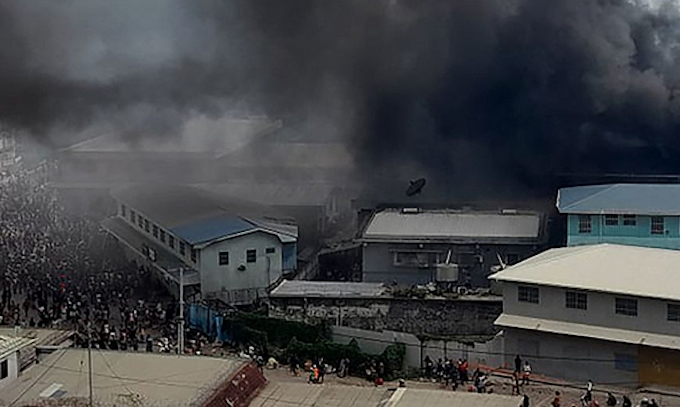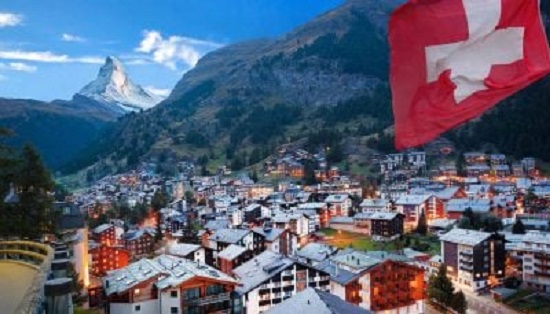On October 21, Israeli Defense Minister Benny Gantz announced the issuance of a military order designating six prominent Palestinian human rights groups as ‘terrorist organizations’. Gantz claimed that they are secretly linked to the Popular Front for the Liberation of Palestine (PFLP), a socialist political group that Israel considers, along with most Palestinian political parties, ‘a terrorist organization.’
The Palestinian organizations included in the Israeli order are Addameer Prisoner Support and Human Rights, Al-Haq, the Bisan Center for Research and Development, Defense for Children Palestine, Union of Agricultural Work Committees (UAWC) and the Union of Palestinian Women’s Committees.
Considering the significance of these organizations in Palestine and their global networks among like-minded civil society organizations, the Israeli decision provoked a public outcry. One of the many statements of condemnation was a joint statement by rights groups, Amnesty International (AI) and Human Rights Watch (HRW), in which they called Gantz’s move an “appalling and unjust decision”, which represents “an attack by the Israeli government on the international human rights movement.”
Strong Words, but No Actions
AI and HRW, which have documented Israeli human rights violations of Palestinians for many years, fully understand that the ‘terrorist’ designation is consistent with a long trajectory of such unlawful moves:
“For decades, Israeli authorities have systematically sought to muzzle human rights monitoring and punish those who criticize its repressive rule over Palestinians. While staff members of our organizations have faced deportation and travel bans, Palestinian human rights defenders have always borne the brunt of the repression. This decision is an alarming escalation that threatens to shut down the work of Palestine’s most prominent civil society organizations.”
Equally important in the world’s leading rights groups’ statement is that it did not fail to highlight that the “decades-long failure of the international community to challenge grave Israeli human rights abuses and impose meaningful consequences for them has emboldened Israeli authorities to act in this brazen manner.”
True to form, the international community did react to Gantz’s decision, albeit it was the kind of ineffectual reaction, which persisted in the realm of rhetoric that is rarely followed by substantive action.
A joint statement by UN experts called the Israeli decision “a frontal attack on the Palestinian human rights movement, and on human rights everywhere”.
Michelle Bachelet, United Nations High Commissioner for Human Rights, criticized the “arbitrary” decision by Israel and warned of the “far-reaching consequences as a result,” in terms of work, funding and support for the targeted organizations.
Many governments around the world also condemned the Israeli move and echoed the sentiment conveyed by UN experts. Even the US expressed its ‘concern’, though, using the same typically cautious and non-committal language.
US State Department spokesman, Ned Price, told reporters on October 23, in Washington, that his country “believe(s) respect for human rights, fundamental freedoms and a strong civil society are critically important to responsible and responsive governance.” Instead of an outright condemnation, however, Price said that the US will “be engaging our Israeli partners for more information regarding the basis for these designations.”
However, like other governments, and certainly unlike AI and HRW, Price made no link between the Israeli decision of October 21 and numerous other past practices targeting human rights and civil society groups in Palestine and, more recently, in Israel as well. Also worth noting is that the supposed link between such organizations and the socialist PFLP is not new.
The following are a few examples of how Israel has attempted to silence some of these organizations, which, eventually were declared to be ‘terrorist.’
Raids, Arrests and Death Threats
Addameer – In December 2012, the Israeli army raided the headquarters of Addamer in Ramallah, confiscating laptops and a video camera. The offices of the Union of Palestinian Women Committees were also raided by Israeli occupation forces on the same day. The organization is one of the six now designated by Israel as ‘terrorist.’
In September 2019, Addameer’s offices were raided, once again. The Israeli military raid at the time, however, did not generate as much attention or outrage, despite the accompanying violence, let alone the blatant violation of human rights. Then, Al-Haq – also one of the other six effectively banned Palestinian groups – issued a statement warning that “the private property of human rights organizations in occupied territory is especially protected under Article 46 of the Hague Regulations (1907).”
Expectedly, such legal constraints mattered little to Israel.
Al-Haq – Al-Haq’s staff have faced many restrictions throughout the years. Shawan Jabarin, the General Director of Al-Haq, has been banned from travel on various occasions, starting in 2006.
In March 2009, Jabarin was prevented by Israel from traveling to the Netherlands to receive an award on behalf of his organization. Again, in November 2011, this time, Jabarin was now allowed to travel to Denmark.
The Israeli obstacles began taking even more sinister turns when, in March 2016, Jabarin began receiving death threats over the phone. These anonymous calls began arriving “in the context of increasing harassment of Al-Haq and its members, amid their recent work at the International Criminal Court (ICC) seeking justice for human rights violations being committed in the Occupied Palestinian Territories,” the Front Line Defenders website reported.
Defense for Children International-Palestine – In July, and again August 2021, Israeli forces raided Defense for Children International – Palestine (DCIP) offices in Al-Bireh, in the occupied West Bank. They seized computers, hard drives and other material, alleging a link between the organization and the PFLP.
This allegation had already been advanced in 2018, when UK Lawyers for Israel (UKLFI) persuaded Citibank and the Arab Bank PLC to stop providing banking services to DCIP, providing what they defined as “evidence of the close ties” to the PFLP.
While it is true that the recent Israeli measures against Palestinian NGOs are a continuation of an old policy, there are fundamental differences between the growing perception of Israel, now, as an apartheid state and the misconstrued perception of the past, namely Israel as an oasis of democracy.
Even international entities and groups that are yet to brand Israel an apartheid state are becoming familiar with the Israeli government’s undemocratic nature.
A ‘Tectonic Shift’
In December 2019, and after years of haggling, the ICC resolved that “there is a reasonable basis to proceed with an investigation into the situation in Palestine, pursuant to Article 53(1) of the (Rome) Statute.” Despite intense Israeli and western pressure, the last hurdle in the way of the investigation was removed last February, as the ICC has finally approved the Prosecutor’s request to open legal proceedings regarding war crimes in the occupied Palestinian territories, including Gaza.
This legal milestone was cemented by major declarations, one made by Israel’s own rights group, B’tselem, in January, and another by HRW in April, both slamming Israeli policies in Palestine – not just the occupied territories – as ‘apartheid’.
This critical change in the international legal position regarding Israel’s new, unflattering status, was boosted by Israel’s own violent actions in East Jerusalem, Gaza and throughout Palestine in May. Unlike previous wars, the May events have shifted sympathy mostly towards Palestinians, who are fighting for their freedom, homes and other basic human rights.
The change was also notable within the US government itself, which is unprecedented by any account. An increasing number of US lawmakers are now openly critical of the State of Israel, due to a radical change in the US public opinion and, again, unprecedently, they are not paying a heavy price for it as was often the case in the past due to the great influence of the Zionist lobby in Washington.
“The shift is dramatic; it’s tectonic,” the BBC, on May 21, quoted US pollster, John Zogby, as saying. “In particular, younger generations are considerably more sympathetic to the Palestinians – and that age gap has been on full display with the Democratic Party,” the BBC noted.
Israel’s losses are not just sentimental or political, but economic as well. Last July, the international ice cream giant Ben & Jerry’s decided to stop selling its products in illegal Jewish settlements while pinpointedly condemning Israeli occupation, a move that was described by Amnesty as “legitimate and necessary”. A few months later, the sports clothing manufacturer, Nike, followed suit, announcing that it will end the sale of its products in Israeli stores starting May 2022, although it did not justify its decision based on political reasoning.
While Israel continues to lash out at its critics, it no longer seems to behave according to a centralized strategy.
Lacking a strong leadership after the dethroning of former Prime Minister Benjamin Netanyahu and the formation of a diverse ‘unity government’, the new Israeli government does not seem capable of holding back international criticism of its conduct in occupied Palestine. The notion that everything that Israel does is justifiable as a form of ‘self-defense’ is simply no longer a strong selling point. The May war is the perfect example of this assertion.
In the case of the banned NGOs, for example, aside from sending a representative from the Israeli intelligence agency, Shin Bet, and another from the Israeli Foreign Ministry to Washington on October 25 with “relevant intelligence” to justify its decision, Tel Aviv continued to carry out the same policies that further exposes its apartheid in the eyes of the international community.
Indeed, on October 27, Israel announced the construction of thousands of new housing units in illegal Jewish settlements, in its first such move during the presidency of Joe Biden.
A perfect illustration of the frantic nature of the Israeli response came on October 29, when the Israeli envoy to the United Nations, Gilad Erdan, during his speech at the General Assembly, tore into pieces a report issued by the UN Human Rights Council illustrating Israeli ongoing violations of international law.
“The Human Rights Council attacked and condemned Israel in 95 resolutions compared to 142 resolutions against the rest of the world,” Erdan said. “This distorted and one-sided report’s place is in the dustbin of anti-Semitism,” he ranted.
Branding Israeli Apartheid
We may be at the cusp of a fundamental change in terms of Israel’s relationship with the international community. While Tel Aviv continues to heavily invest in its apartheid infrastructure, the international community is slowly, but clearly, becoming aware that Israel’s apartheid status is a permanent one. The successive statements by B’Tselem, HRW, the joint HRW-Amnesty statement condemning the de facto outlawing of the Palestinian NGOs and, again, the ICC investigation are all indicative of this growing awareness.
The question remains – will Israel be able to use its power, influence and leverage in Western societies to force the world to accept and co-exist with a full-fledged apartheid regime in Palestine? And if yes, then, for how long?
The South African apartheid example showed that, despite decades of apartheid and initial acceptance, if not support, by western societies of legalized racial separation in South Africa, the pendulum eventually turned. Even before the formal end of apartheid in that country in 1994, it was becoming clear that the days of the racist regime of Pretoria were numbered. That realization was possible because of the growing international awareness, especially at grassroot, civil society level, of the evil of apartheid.
A similar scenario seems to be evolving in the case of Israeli apartheid in Palestine as well. A critical mass of support for Palestinian rights is being constructed around the world, thanks to the Boycott, Divestment and Sanctions (BDS) movement and hundreds of pro-Palestine civil society groups all around the globe.
For years, Israel seemed keen on countering the influence of Palestine’s solidarity around the world using a centralized strategy. Large sums of money were dedicated, or pledged, towards that end, and a partly government-controlled company was even established, in 2017, to guide the Israeli global campaign. Much of this has amounted to very little, however, as BDS continues to grow, and the conversation on Palestine and Israel is gradually changing from that of a political ‘conflict’ into recognition of Israeli racism, apartheid and utter disregard of international law.
Of course, it will take more time, more decided effort and, certainly, more sacrifices on the part of Palestinians and their supporters to expose Israeli apartheid to the rest of the world. Now that Israel seems to have accepted that there is little it can do to reverse this brand, it is accelerating its colonial efforts, while hunkering down for a long fight ahead.
The onus is now on the international community to force Israel into dismantling its apartheid regime. Though it is ultimately the people who liberate themselves, international solidarity is essential to the process of national liberation. This was the case in South Africa and will surely be the case in Palestine, as well.

The post
Raids, Arrests and Death Threats: Israel’s Strategy of Silencing Human Rights Defenders first appeared on
Dissident Voice.
This post was originally published on Dissident Voice.







 Honiara
Honiara  community out on the streets today for a cleanup session
community out on the streets today for a cleanup session  Pictures by Rodney Arofasei
Pictures by Rodney Arofasei 







